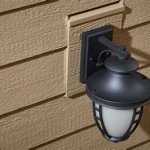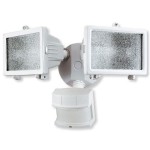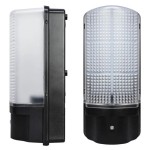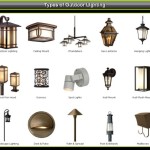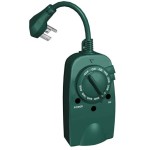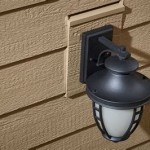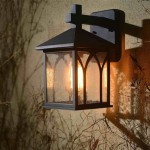Non-Hardwired Outdoor Lighting: Essential Considerations for a Brighter and Safer Exterior
Non-hardwired outdoor lighting offers a convenient and flexible solution for illuminating pathways, patios, and other outdoor areas without the need for electrical wiring. These lights utilize alternative power sources like solar, batteries, or gas, making them ideal for remote locations or areas where running wires would be impractical or expensive.
When considering non-hardwired outdoor lighting, several essential aspects must be taken into account to ensure optimal performance and longevity:
1. Power Source
The type of power source determines how the light will be energized. Solar lights are a popular choice as they harness energy from the sun during the day to power the light at night. Battery-powered lights offer flexibility but require regular battery changes. Gas-powered lights provide a more consistent light source but require fuel and maintenance.
2. Lumens and Brightness
Lumens measure the brightness of a light source. For effective illumination, choose lights with an appropriate number of lumens for the intended area. Brighter lights (over 1000 lumens) are suitable for larger areas like driveways or patios, while lower lumens (20-200) are sufficient for pathways or accent lighting.
3. Color Temperature
Color temperature refers to the warmth or coolness of the light emitted. Warm white (2700-3000K) creates an inviting and cozy atmosphere, while cool white (4000-6500K) provides a brighter and more vibrant illumination. Choose a color temperature that complements the surrounding decor and desired ambiance.
4. IP Rating
The IP (Ingress Protection) rating indicates a light's resistance to water and dust. Lights with a higher IP rating (e.g., IP65) are better suited for outdoor use, as they can withstand exposure to moisture and dust.
5. Durability and Construction
Non-hardwired outdoor lights should be durable to withstand various weather conditions. Look for lights made of weather-resistant materials like aluminum or stainless steel that can endure extreme temperatures and moisture.
6. Motion Sensors
Motion sensors can be incorporated into non-hardwired outdoor lights to activate the light only when movement is detected. This feature enhances security and safety while also conserving energy by preventing the light from staying on unnecessarily.
7. Aesthetics
Consider the aesthetic appeal of the lights to complement the overall outdoor design. Choose lights with styles and finishes that align with the architectural style of your home and surroundings.
By carefully considering these essential aspects, you can select non-hardwired outdoor lighting that meets your specific needs and enhances the safety, ambiance, and functionality of your outdoor living spaces.

Backyard Lighting Ideas

The 3 Best Smart Outdoor Lights For Backyards Of 2024 Reviews By Wirecutter

7 Ways To Power Outdoor Lights Without Electricity

Laplusbelle 1 Light Black Metal No Motion Sensing Hardwired Weather Resistant Outdoor Post Set With Bulb Included Hla2315 P The Home Depot

Newhouse Lighting 30w 3600 Lumen 120 277 Volt Broe Non Dimmable Integrated Outdoor Led Weatherproof Bullet Flood Light And Mount V5blf30brz The Home Depot

Ring Lighting Indoor Outdoor Home Switches And Bulbs

Cedar Hill 14 In Black Metal Outdoor Wall Lantern Sconce Light 106202 The Home Depot

Outdoor Lighting Guide Lowe S

Homeowner S Guide To The Best Outdoor Lighting Family Handyman
Related Posts
